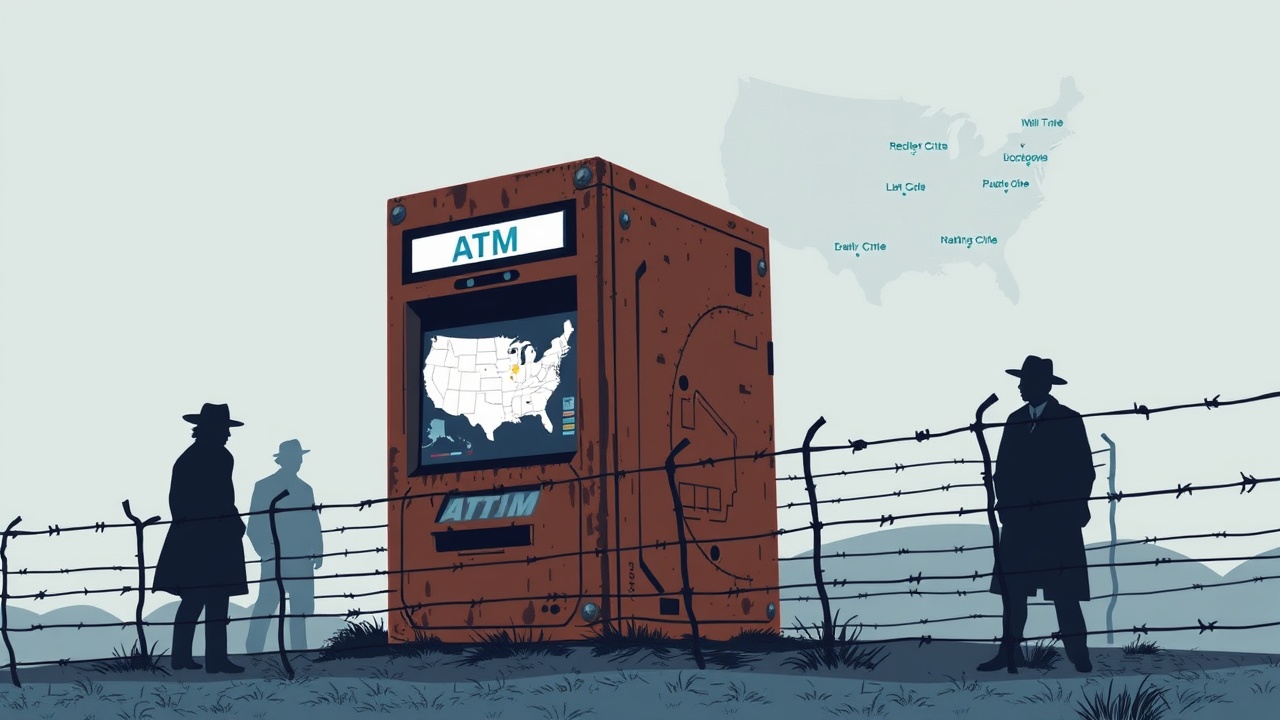Introduction
As the use of cryptocurrency kiosks, commonly referred to as Bitcoin ATMs, continues to rise, U.S. regulators are beginning to take a firmer stance against them, driven by growing concerns over their role in fraudulent activities and scams. Once hailed as a symbol of burgeoning cryptocurrency adoption, these machines are now facing scrutiny as incidents of illicit usage come to light. The FBI reported significant spikes in fraud linked to these ATMs, with nearly 11,000 complaints filed in 2024 alone, resulting in over $246 million in reported losses.
Municipal Responses
In response to this alarming trend, several municipalities are enacting strict regulations or outright bans on crypto ATMs. In Stillwater, Minnesota, city officials moved swiftly to prohibit these machines after a senior citizen was swindled out of more than $5,000. The local police noted a total of 31 fraud cases relating to crypto kiosks since 2023, with an even more severe case involving a victim losing $29,000. Concerns regarding limited resources for investigation prompted the city to act.
Similarly, Spokane, Washington, followed suit by banning crypto ATMs on June 17, following a noticeable increase in scams utilizing these devices. According to City Council member Paul Dillon, these kiosks have become a common instrument for scammers looking to exploit unsuspecting individuals. Spokane’s ban not only halts the installation of future machines but also mandates the removal of existing ones.
In Grosse Pointe Farms, Michigan, a proactive approach led to the introduction of transaction limits even before any crypto ATMs set up operations in the town. Local authorities implemented a daily cap of $1,000 and a maximum of $5,000 over 14 days to mitigate potential risks to residents.
State-Level Regulations
Many states are also adopting new regulations. Arizona’s Governor Katie Hobbs signed into law House Bill 2387, which imposes transaction limits of $2,000 per day for new users and $10,500 for returning users after a 10-day period, alongside a new user refund policy in cases of fraud. Arkansas passed measures reflecting similar concerns, addressing significant consumer losses reported at crypto kiosks and implementing safeguards, including a daily limit of $2,000 for new users and mandatory warnings about potential fraud.
In Iowa, serious actions were taken against major operators in the crypto ATM industry, including a lawsuit from the Attorney General against Bitcoin Depot and CoinFlip for allegedly contributing to the scam cycle. Legal updates in other states, like Maine, Maryland, and Colorado, have similarly enforced strict regulations that compel operators to register and follow specific transaction limits while prioritizing consumer protection against scams.
Protecting Vulnerable Populations
With an increasing emphasis on safeguarding the elderly—a group particularly vulnerable to such fraud schemes—more states like North Dakota and Nebraska are crafting stringent laws aimed at enhancing regulatory measures over crypto ATMs. Reports indicate that senior citizens form a considerable demographic within states like Iowa and Maine, prompting lawgivers to take decisive action.
Future Outlook
Some proposals even suggest a nationwide regulatory framework could emerge, as the issue of fraud linked to cryptocurrency ATM usage gains visibility among lawmakers. The hurdles imposed by licensing requirements and transaction caps may pose significant challenges to these operators, potentially stunting the growth of the crypto ATM market as authorities continue to prioritize consumer protection and accountability.




